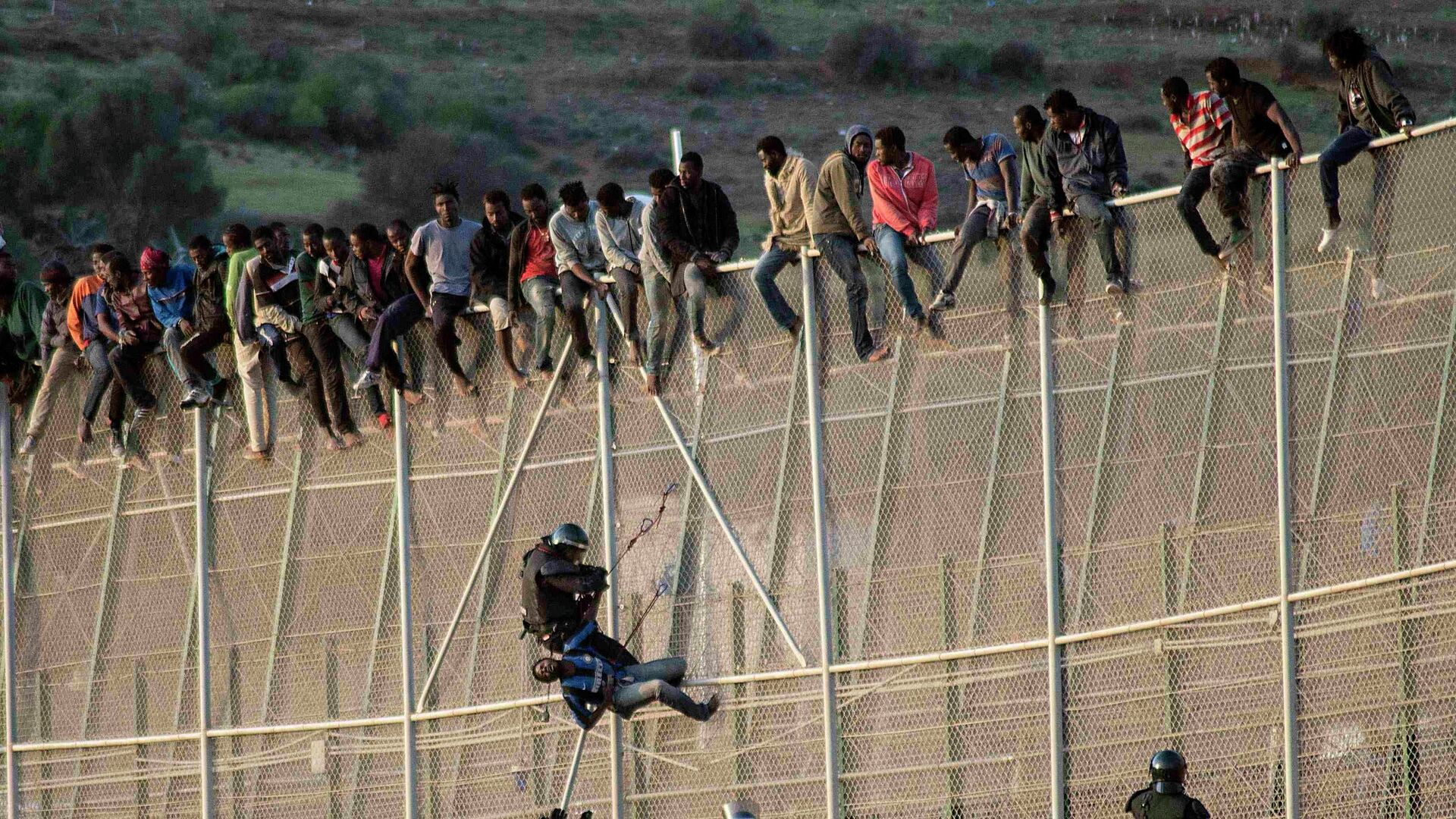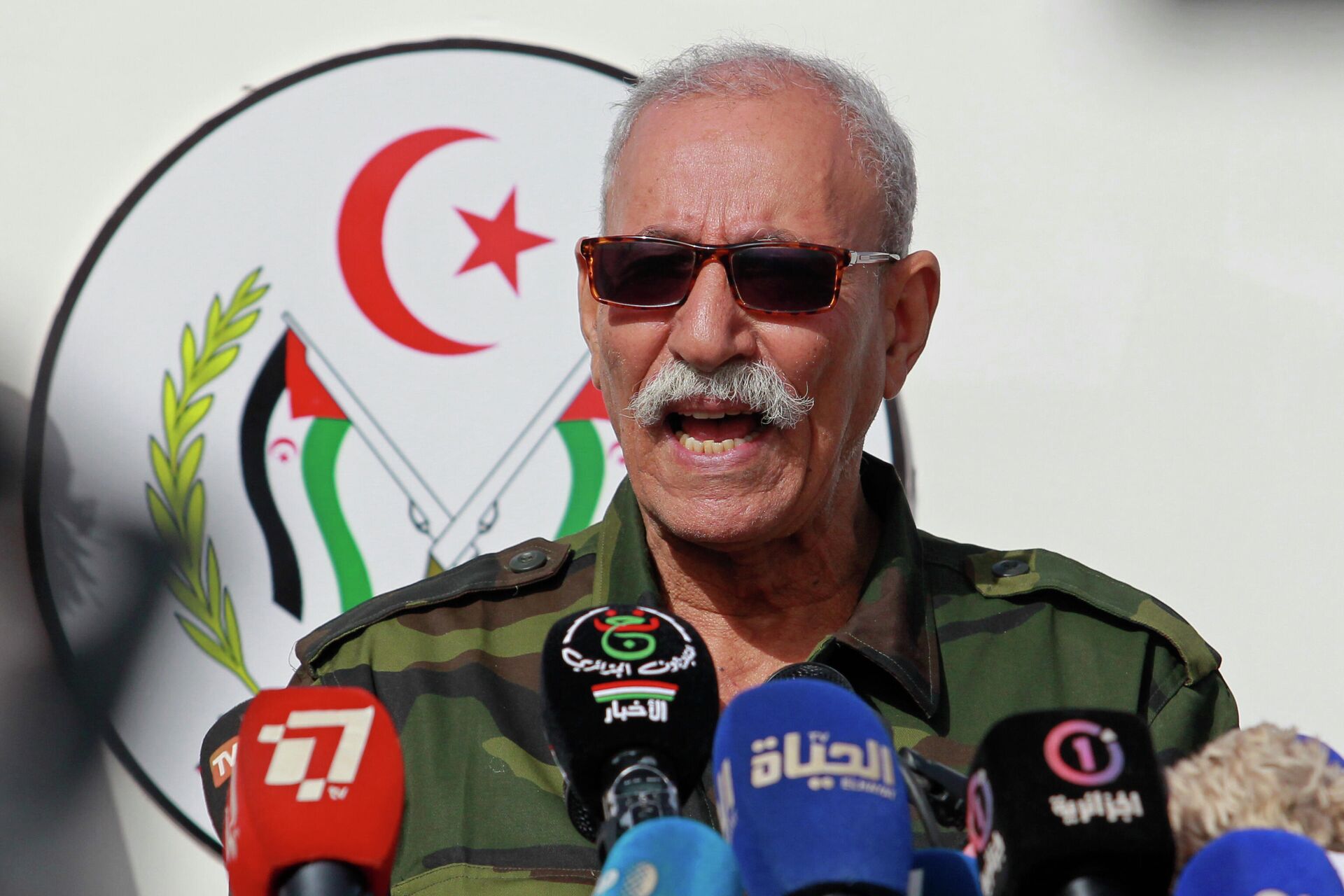Spain Abandoned Western Sahara Position to Win Morocco's Cooperation on Migrants, PSOE Doc Reveals
19:24 GMT 21.03.2022 (Updated: 11:44 GMT 09.02.2023)

© REUTERS / Jesus Blasco de Avellaneda
Subscribe
Spain ruled the colony of Spanish Sahara from 1884 until granting the territory independence in 1976. Although Morocco claimed sovereignty over the territory, indigenous Saharawis declared a republic and fought a 15-year war of independence against them. A UN-brokered ceasefire in 1991 promised an independence referendum that has never happened.
On Friday, Spanish Foreign Minister Jose Manuel Albares announced an abrupt change in Madrid’s policy toward Western Sahara, backing a Moroccan plan to give the non-self-governing territory autonomy under Moroccan rule. Internal documents from Spain’s ruling party purport to reveal Spanish Prime Minister Pedro Sanchez’s motivation for abandoning a United Nations independence referendum in Western Sahara.
According Algerian news outlet La Patrie, which obtained the document and published a story on Monday about its contents, the deal has been in the works for “several months” and aims to heal “the worst crisis with Morocco in decades” and improve “the defense of Spanish citizenship, of Spain's interests, in particular, of our security, our sovereignty, our prosperity and our territorial integrity, including Ceuta and Melilla.” The latter are two exclaves on the North African coast that are ruled by Spain but surrounded by Morocco.
"These new relations with our neighbors allow us to strengthen the security of the borders of Ceuta and Melilla, and the maritime borders of the Canary Islands, to ensure the control of migratory flows and the fight against trafficking in human beings, to guarantee cooperation in anti-terrorism matters, to restore normality in the circulation of people and goods, and guarantee the functioning of all bilateral cooperation mechanisms, avoiding unilateral actions,” reads the internal document from the Spanish Socialist Workers Party (PSOE), the leading party of Spain’s coalition government.
"The position expressed by the Spanish government is absolutely in contradiction with international legality,” Polisario said in a Saturday statement about Madrid’s reversal. The group, headquartered in the Tindouf refugee camp in western Algeria, called on other Spanish political factions "to exert pressure on the Spanish government to correct this grave error.”
Indeed, the following day 11 Spanish parties sent letters to Sanchez’s office demanding answers about the change.
“The United Nations, the African Union, the European Union, the International Court of Justice, the European Court of Justice and all regional and continental organizations do not recognize the (alleged) Moroccan sovereignty over Western Sahara," Polisario also said.
The shift in Spanish policy is a pronounced about-face from last year, when against Rabat’s protests, Spain welcomed Brahim Ghali, secretary-general of the Saharawi liberation front POLISARIO, into a Logroño hospital for COVID-19 treatment. In June 2021, Sanchez’s government pressured the Biden administration to reverse course on Western Sahara and renounce a decision by the prior Trump administration to recognize Morocco’s claims to rule the territory to its south.

In this Feb. 27, 2021 file photo, Brahim Ghali, leader of the Polisario front, delivers a speech in a refugee camp near Tindouf, southern Algeria. Brahim Ghali, the leader of the Western Sahara independence movement at the heart of a diplomatic spat between Spain and Morocco, will appear before an investigating judge in Spain on June 1, 2021. Ghali, who has been recovering from COVID-19 in a Spanish hospital, faces a probe for possible genocide and a lawsuit for alleged tortures.
© AP Photo / Fateh Guidoum
However, earlier this month Washington made clear its intention to stay the course set by former US President Donald Trump. "We continue to view Morocco's autonomy plan as serious, credible and realistic," US Deputy Secretary of State Wendy Sherman told reporters during a March 8 presser in Rabat with Moroccan Foreign Minister Nasser Bourita.
However, just days later, US Sen. Patrick Leahy (D-VT) said in a statement that unlike in past years, aid disbursement from the 2022 State, Foreign Operations, and Related Programs Appropriations Act would be given to Western Sahara and Morocco separately, noting that the act directs the US Secretary of State to “continue to support a United Nations-led political process that achieves a just, lasting and mutually acceptable political solution in accordance with relevant United Nations Security Council resolutions.”
Spain conquered the territory during the European “Scramble for Africa” in the late 19th century, from which it extracted phosphates for explosives and fertilizer and gained access to rich fisheries off the coast. After international pressure and indigenous resistance by Polisario forced Spain to give the territory independence in 1975, Morocco claimed sovereignty over it and extracted the same resources. Since then, Polisario has pressured international governments and corporations not to invest in such operations in Western Sahara without approval of the Saharawi people.
Nabila Massrali, a spokesperson for EU foreign policy chief Josep Borrell, said on Monday that the bloc “welcomes any positive development” between its member states and Morocco - a de facto endorsement of Madrid’s policy shift. However, last September, the EU Court of Justice struck down a trade deal with Morocco after finding that the access to Western Saharan fisheries granted by the deal had not been obtained via the consent of the Saharawi people, for whom the UN recognizes Polisario as the political representative.
After the Spanish departure, Polisario fought a 15-year war against Morocco that ended in 1991 with a UN-brokered ceasefire and a promise to hold an independence referendum in the territory. That promised vote has never been held, even while Moroccan extraction and settlement continued, and in November 2020 the peace agreement collapsed after Moroccan security forces dispersed a Saharawi protest at a border crossing into Mauritania. A month later, Trump announced his administration would back Morocco’s claims to rule Western Sahara in exchange for Morocco agreeing to normalize relations with Israel, as several other Arab states had recently done under US pressure.
In October 2021, a year into the new war, Saharawi human rights activists and diplomats told Sputnik that the situation in Western Sahara had declined precipitously, with Moroccan officials harassing and suppressing activists and Saharawi nationalists and blocking the press from reporting on the incidents.
Let's stay in touch no matter what! Follow our Telegram channel to get all the latest news: https://t.me/sputniknewsus


